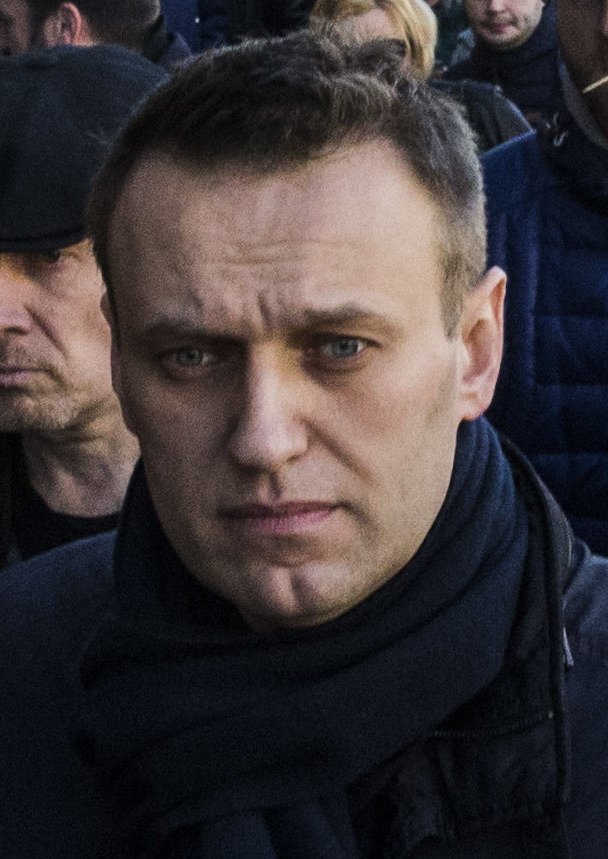Alexei Navalny: the Opposition Figure Putin Never Named
Lily Donahue | 26 February 2024
Summary
Alexei Navalny, Russia’s most famed opposition figure, has been found dead in the penal colony in which he was imprisoned.
Now bereft of an opposition figurehead, many anti-Putin Russians feel at a loss.
Russia’s March elections will undoubtedly see Putin continue his presidency.
Russia’s primary opposition figure, Alexei Navalny, has been found dead in the penal colony in which he was imprisoned. He was 47. A statement from the Yamalo-Nenets district, which houses the jail, reported that Navalny had been on a walk before feeling unwell. The statement claimed that he lost consciousness after; attempts to resuscitate him were unsuccessful.
Navalny was serving a 19-year sentence on trumped-up charges of political extremism since January 2021. He had returned to Russia after a period of convalescence in Germany after having been poisoned with a Novichok nerve agent in August 2020.
He was Russia’s most active and well-known opposition politician, and was never named by Putin. Designating United Russia (Putin’s political party) as a “party of crooks and thieves,” Navalny was tenacious in his anti-Putin activity, pursuits which saw him jailed several times. Trained as a lawyer, Navalny first came to prominence for exposing corruption via his Livejournal blog. Navalny once came in second in the 2013 race for Moscow mayor, which was rare for an opposition figure since Putin assumed power in the late 1990s. It is important to note, however, that the campaign was at least partially motored by anti-migrant sentiment.
Though Russian opposition tends to incubate in Moscow and St. Petersburg, Navalny was able to reach peripheral regions within Russia and found support among young voters with his YouTube videos and veracity with memes. His opposition to Putin intensified with the war in Ukraine, which he vehemently opposed.
Navalny leaves behind a complex legacy; he was perhaps more potent for his opposition symbolism than for his politics. Broadly considered by Western countries to be the face of the new Russia—indeed, “Beautiful Future Russia” is an optimistic slogan among his team—Navalny could be considered an emblem of the opposition, a role he managed after painstaking political action. He was, however, often criticised for interfacing with disparate swaths of Russian political figures. Mixing liberalism with nationalism—widely considered anathema—would tarnish his reputation. Yabloko, the liberal party which fostered Navalny’s development, eventually ousted him for his engagement with nationalist activity, such as participation in the “Russian March,” an annual protest which includes fundamentally nationalist groups, among them neo-Nazi aligned.
Navalny later maintained that such activity was necessary to garner support throughout all rungs of Russian society: to gather people with the ultimate goal of removing Putin. Once Putin was ousted, Navalny pressed, then true politics could begin. It is arguable this was one of his weaknesses, and is visible within Russian opposition broadly: the tendency to fixate only on Putin’s removal, at the expense of crafting a future political order.
Though he later apologised, Navalny had in the past engaged in politicking that was highly unsavory. Fundamentally an anti-corruption activist, Navalny protested against Russian Federation funding to Chechnya. Though part of the Federation, Chechnya exists as a constituent republic, which offers it a degree of political autonomy. For many years, Chechnya received direct funding from Moscow, unlike other republics which receive money on a case-by-case basis. Navalny objected to this, maintaining that it strained the average Russian taxpayer and that the money was not tracked and likely funneled to corrupt politicians. While this was his justification for the slogan “Stop Feeding the Caucasus,” one could view this rallying cry as an ethnically-based rousing, ignoring the destruction Russia wrought on Chechnya in the 90s and early 2000s, and designating those in the Caucasus as “Other” from ethnic Russians. Such nationalist rhetoric may have given credence to groups which would use extremist rhetoric without hesitation.
Navalny was, however, the only anti-Putin figure able to create of himself a symbol of the opposition. Whether or not he would have ever risen to official, elected political prominence, Navalny was the figurehead for another Russia. Enjoyed by Western counterparts for his irreverence and easy manner, and appreciated by anti-Kremlin Russians for his consistency and doggedness, his death has created a vacuum for the opposition.
Evgeny Feldman
Forecast
Short-term: The Russian opposition will be reeling from the loss, and will likely find it exceedingly difficult to rally around another individual. (Yulia Navalnaya, Navalny’s wife, has declared she will take up the mantle of his opposition.) Due to the severity of cost for protesting in Russia, it is unlikely Navalny’s death will spark large-scale protest.
Long-term: Putin is running for another term, having changed the law on presidential term limits in 2020. It is likely he will win.

